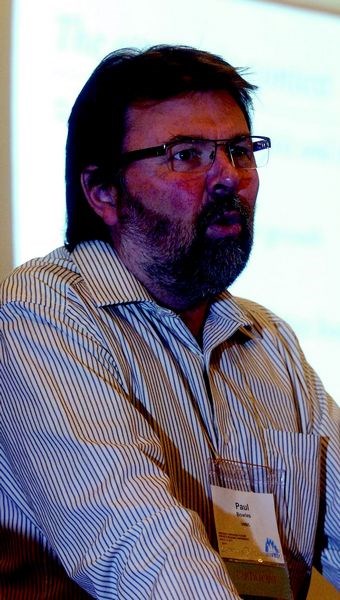UNBC economist Paul Bowles proposed the idea Friday the province should create a "brighter futures" board, that would help examine issues in the province's economy and recommend solutions.
Unlike the existing B.C. Progress Board, he proposed making the board more inclusive to include representation from aboriginal groups, labour and environmental groups, in addition to business.
He proposed the idea during a presentation on the first day of the B.C. Federation of Labour's two-day forum in Prince George, entitled Building a Brighter Future for B.C. Resource Communities. He took the name for the board from the title of the forum at the Coast Inn of the North.
Bowles added the board should also focus on different sectors of the economy and regions in the province.
"You can have a collective discussion about how we're going to move forward so that everybody benefits," he said.
He said discussion that focuses on a wider spectrum of stakeholders is important for northern B.C. and its resource economy because there's been an unprecedented increase in the price of many natural resource and commodity products driven by demand in large-population countries like India and China.
Historically, natural-resource economies have been viewed as those whose value will diminish over time compared to manufacturing-based economies. For example, explained Bowles, in a country like Cuba, over time it will cost more tonnes of sugar to buy a tractor.
That century-long trend of diminishing value returns from natural resource economies appears to have reversed, although it's not known if it will be permanent, he noted. Still, it has significant implications for northern B.C. which will now be the focus of much more attention, said Bowles.
Issues the brighter futures board would want to look at include how to sequence large natural resource projects since there will be little or no cost to waiting to develop resources, he said.
The timing of projects is important because a more even flow of construction would avoid employment highs and lows.
Bowles said that other items that are important to be examined include decent work that provides security not just flexibility, and local procurement and hiring policies endorsed by government.



